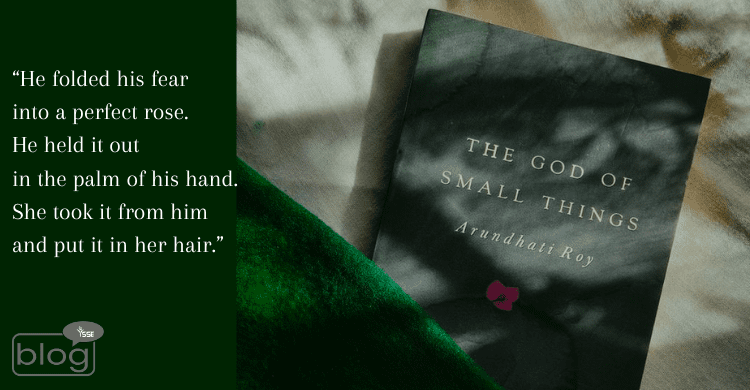Arundhati Roy’s debut novel, The God Of Small Things, won the 1997 booker prize. This work was quite ambitious; as it talked about many taboos of India. But the lush and gorgeous poetic approach made Roy’s writing quite original, which eventually won her the award all writers dream of. But what makes The God Of Small Things a masterpiece? If you see the reviews of the book on good reads, there are only two types, either 5-4 stars or 1 star. Why does it have this kind of a love-hate relationship with the readers? Let’s unveil all the hidden facts behind the book.
Summary and Plot Overview
The story is set in the state of Kerala, in two time spaces, one at 1969 in the midst of the marxist movement in India and the present time, when the two fraternal twins, Rahel and Estha are reunited. They were estranged for a long time due to one tragic event which changed their life forever. The tragic event occurred like a domino effect; their mother, Ammu, married a hindu bengali, who turned out to be an alcoholic. Her divorcing him and returning to her family estate but living as an outcast. Afterwards she falls for an untouchable, the most controversial plot of the novel, leading to massive chaos and she outbursts on her innocent twins. Estha and Rahel, disheartened with their mother’s action, tried to flee home, like any other seven years old. Their English cousin Sophie, who happened to be there for christmas vacation around that time, accompanies them but drowns in the river they tried to cross as she is not as skilled swimmer as the twins. This leads to the pivoting point of the story afterwards, Estha was sent to his father and their little life falls apart.
The Small Things
As the name suggests, Roy really focused on the smaller things. From the smells to the sights, all the details were captured in a very beautiful manner. Estha and Rahel’s little adventures, their obsession with reversing words, their small belief that if a person dies on a zebra crossing, the government will pay for the funeral, their observation of a dead frog on the highway which is flattened out under the tire pressures of the passing cars and their unending clash with Baby Kochamma. The small unfulfilled dreams of each character are portrayed in such a way that readers are bound to feel that within themselves.
The Really Big Things
The novel also focused on the really big issues, like cast-phobia, forbidden romance and a little bit of Indian politics amid everything. Ammu falls for an untouchable, Velutha, who was later accused for the murder of Sophie, was unjustly killed by the police in remand due “crossing cast lines”. Small details among these really big things are perfectly captured. Ammu’s affair with Velutha was not accepted while Chako, her brother, was allowed to spend the night with Mamachi’s pickle factory workers. How Margaret, Sophie’s mother, had responsibilities for her daughter after her second husband’s death but nothing after Sophie’s death. These little instances instilled the emotions into the reader’s heart.
The Controversial Part
The novel received mixed reactions from the readers. Those who liked it, loved it; those who didn’t hated it. The narration of the book is not sequential, once it is at present and once it is in the past. The smaller details were put into account more than the bigger things. And these things might not have won the hearts of many readers.
My personal opinion is that The God Of Small Things is a masterpiece and it deserves all the hype it received. Roy nailed the narration of the novel so nothing seemed irrelevant. Only due to the controversy, for a long time I could not acknowledge it as my best read book. But now I am brave enough to admit that The God Of Small Things is my favourite book out of the hundreds of books I have read.
To read more blogs like this click here.
Writer,
Rifah Zakiah
Intern,
Content Writing Department
YSSE

